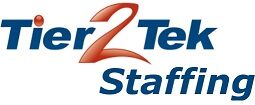Hire Desktop Support Engineers

Best Staffing Agency for Desktop Support
Tier2Tek Staffing stands out as a top-tier employment agency dedicated to fulfilling the complex staffing needs of hiring managers, specifically in the realm of Desktop Support. With a robust track record in recruitment and direct hire placement, we ensure that each candidate we deliver aligns perfectly with the intricate requirements of your IT support needs.
Our Expertise in Staffing and Recruitment for Desktop Support
At Tier2Tek Staffing, you can rest assured that your staffing requirements are in professional hands. Our approach to recruitment in the Desktop Support sector is built on a deep understanding of the nuances that define this critical area. Whether you are seeking temporary assistance or a permanent addition to your team, our refined process and dedicated consultants are here to facilitate a perfect match.
Why Choose Us
Selecting the right recruitment partner is crucial. Here are compelling reasons to choose Tier2Tek Staffing:

Sourcing Speed
We leverage advanced sourcing techniques to quickly fill Desktop Support roles without compromising quality.

Communication with Clients
Our team maintains open and continuous communication, ensuring you are informed at every step.

Quality Candidates
We provide candidates who not only meet but exceed the requirements of the role.

Innovative Sourcing
Utilizing a mix of traditional and innovative sourcing methods, we access a wide talent pool to find the best fit for your needs.
Our Statistics and Success in Placement
95%
95% Client Retention
A testament to our effective staffing solutions and client satisfaction.
☝ Week
Rapid Placement Times
Over 80% of positions are filled within the first week.
95%
High Candidate Approval
95% of our candidates pass our clients’ first-round interviews.
Client Testimonials from Hiring Managers
IT DIRECTOR
“Tier2Tek Staffing revolutionized how we fill our Desktop Support roles. They are fast, efficient, and exceptionally professional.”
HR MANAGER
“The quality of candidates from Tier2Tek is unmatched. They understand our needs and consistently exceed our expectations.”
OPERATIONS MANAGER
“Thanks to Tier2Tek, our Desktop Support team is stronger than ever. Their dedication and expertise in staffing have made all the difference.”
Desktop Support Job Description
This desktop support individual has strong communication skills with at least two years of current desktop support experience. This includes hands-on and on-site support as opposed to help desk operations. This position assists end users with technical support of desktop computers, applications, and related technology. Support includes specification, installation, and testing of computer systems and peripherals within established standards and guidelines.
Key Responsibilities:
- Provide first-level contact and convey resolutions to customer issues.
- Properly escalate unresolved queries to the next level of support.
- Track, route, and redirect problems to correct resources.
- Update customer data and produce activity reports.
- Walk customers through problem-solving processes.
- Follow up with customers, provide feedback, and see problems through to resolution.
- Utilize excellent customer service skills and exceed customers’ expectations.
- Ensure proper recording, documentation, and closure.
- Recommended procedure modifications or improvements.
- Preserve and grow your knowledge of help desk procedures, products, and services.
Requirements:
- Proven working experience in providing help desk support.
- Proficiency in English.
- Working knowledge of help desk software, databases, and remote control.
- Strong client-facing and communication skills.
- Advanced troubleshooting and multi-tasking skills.
- Customer service orientation.
- BS degree in Information Technology, Computer Science, or equivalent.
Experience Level
The desktop support role is often considered an entry-level job. Oftentimes, those hired for support roles, like customer service representatives, have no prior experience in the exact field. They may be required to prove their desktop-based abilities (and some job postings require 1 to 2 years of desktop work experience), but they don’t often require an outright degree or expert-level experience. Once they have shown ability with hardware, they may be trained for the role through the company.
Common Certifications for Desktop Support
Certified Network Computer Technician (CNCT)
With the basis of desktop support regarding the physical hardware of computers, owning a certification that proves the candidate’s straightforward abilities to work on computers is a necessity. Provided by the ETA, the CNCT certification requires passing a test and course that surrounds the basics of electronics, networks, and computer hardware.
CompTIA A+
The CompTIA A+ certification is an ideal IT credential for beginners, regardless of what role they plan to go into. Overall, the certification assures that the candidate can install, configure and maintain personal computers, mobile devices, printers, and laptops. It demonstrates both basic technical abilities and troubleshooting skills, things crucial for Desktop Support.
Google IT Support
Google provides associate certifications for all of its pillar software and general Desktop and IT support. Through a Google class and certification program, the candidate will learn the basics of computer setup, troubleshooting, binary systems, and other basic IT methodologies. Simply put, it’s a crash course for general desktop support provided by Google professionals.
Common Skills For Desktop Support Staffing
Knowledge of Correlated Computer Hardware
Overall, the desktop support specialist works hands-on with all user computers and hardware, therefore, they need to have a significant amount of knowledge and skills regarding physical repairs. Though an IT specialist may be versed in overall hardware, they need to be experts on the specific hardware used by the business. For a very general example, a desktop support specialist may be great with PCs, but if the company uses Apple hardware, then they need to have transferrable knowledge.
Record Keeping
Because the specialist may work with a multitude of people daily, they are likely to have to report tickets and maintain notes on each individual user. From recording the overall issues to detailing the steps used to fix them, the worker will have to have great record-keeping abilities. With this information, they can expedite troubleshooting and fixes in the future.
Communication Skills
Due to the nature of having to communicate with customers and peer users in the troubleshooting and training of issues, the Desktop Support worker requires a bevy of customer service and communication abilities. Ultimately, they must be able to empathize with customers, understand their problems, and defuse upset situations. Once defused, they must be able to explain the solutions or next steps with clarity and brevity. No one wants to get stuck on the phone with a customer service rep that can’t express the solution directly.
Common Career Path After Desktop Support
The next logical step for a Desktop Support worker is to move up to manager. Ultimately, this would involve the inclusion and advancement of managerial skills. Once a Desktop Support worker becomes an expert in the correlated product and expresses leadership abilities, they will be bumped up to a senior or managerial role.
Once an IT service professional understands the core of the business software, they may be moved to a more specific role, covering the application specifically. The application support specialist’s duties consist of root cause analysis, data repair operations, methodology execution, and application service restoration. This is a level 3 support position and requires senior-level technical and application expertise.
A NOC (Network Operations Center) Technician monitors and maintains network systems, handles troubleshooting, manages updates, and responds to network issues to ensure optimal performance and uptime of IT services. They play a critical role in preventing and resolving technical problems to keep networks running smoothly.
